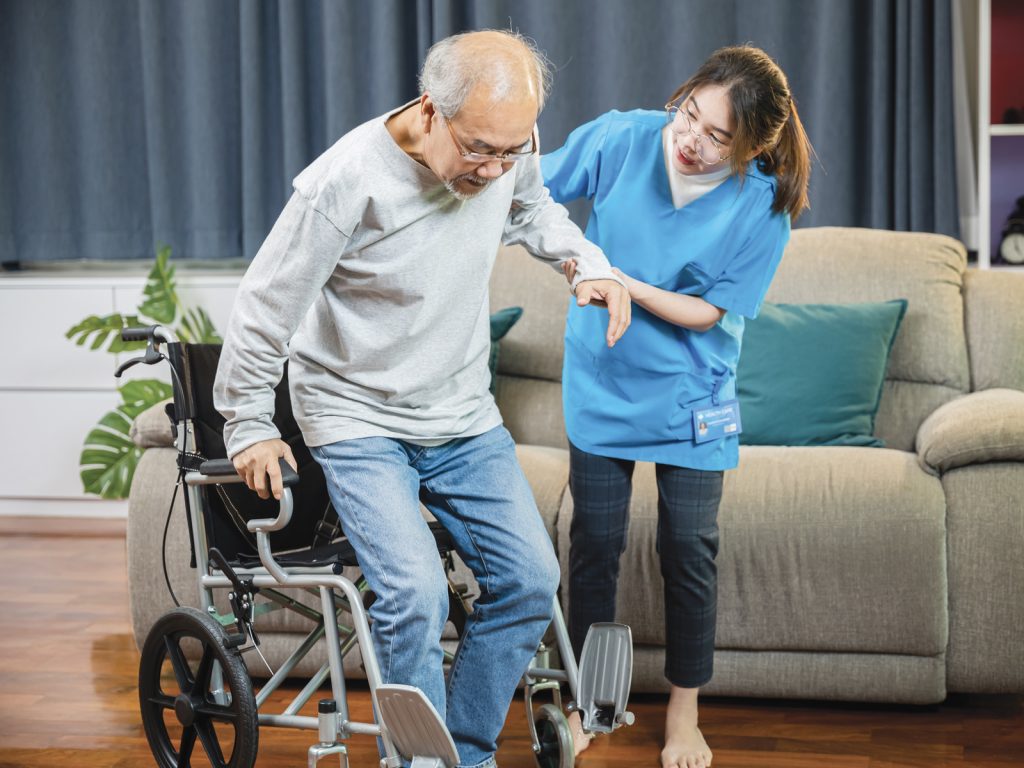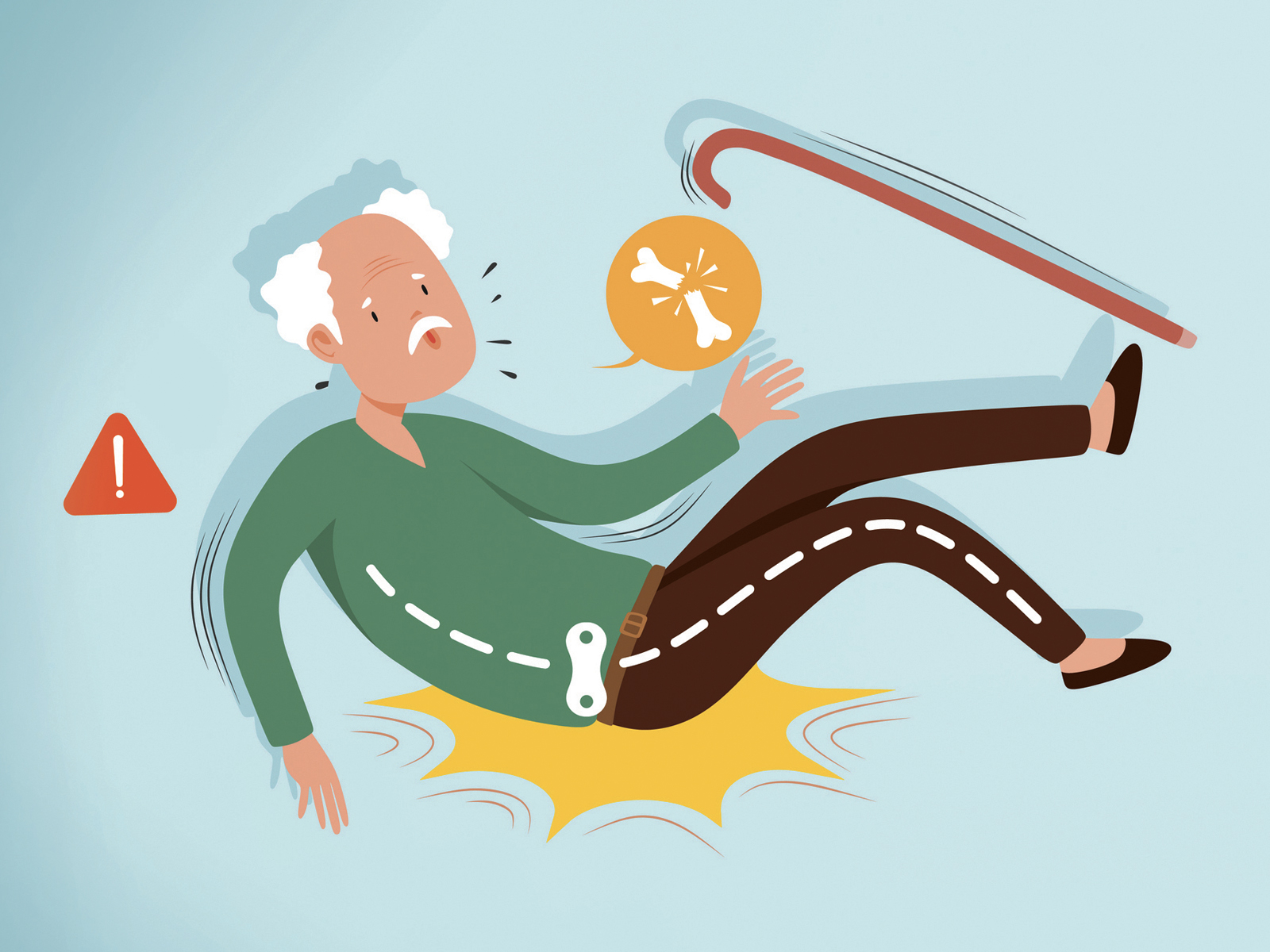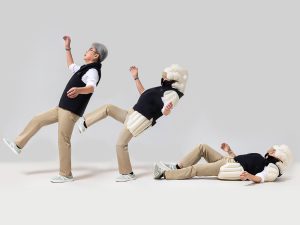Falls are the leading cause of injury-related deaths and hospitalizations in Canada. On average, 13 older adults die and 259 are hospitalized every day from falls. Every year in Canada, between 20 and 30 per cent of older adults experience a fall.
These numbers will continue to climb as older Canadians are now the fastest-growing segment of our population: by 2031, one in four Canadians will be aged 65 or older.
Falls among older adults can irreversibly impact their quality of life and cause disability, decreased mobility, increased risk of premature death, lead to mental health challenges such as fear of falling, confusion, and depression, increased isolation and loss of independence. More and better fall prevention initiatives are crucial to address this threat to older adult health.
The fall prevention domain spans several settings, professions and topic areas. There is a real need for groups working on fall prevention to share expertise and knowledge, learn from each other’s experiences and invest in common solutions to optimize healthy aging.
The Fall Prevention Community of Practice (CoP) came together in 2010 and is currently operated by Parachute. Loop, the bilingual, virtual interactive communication platform for the CoP, was created in 2015 to share information, network, problem-solve and discuss how to implement evidence-informed and promising fall prevention practices among health practitioners, policy makers, researchers and caregivers.
The success of Loop led to the creation of Loop Junior in 2018, which seeks to tackle the issue of injury from childhood falls from birth to age 6.
Since their inceptions, Loop and Loop Junior have delivered more than 80 webinars with nearly 7,000 recording views, produced more than 20 evidence summaries, and garnered nearly 2,800 active members.
Loop enables its members to innovate, learn, share and implement by offering a wide range of resources and opportunities.
1) Webinars: Ongoing education opportunities on fall prevention research, policy and practice.
2) Discussion forums: Ask questions, gain practical, how-to advice and share information to inform their practice and research.
3) Event calendar: Features members’ fall prevention events and schedule for Loop webinars.
4) Knowledge centre: Provides usable, evidence-informed fall prevention information. Members can request a literature search consultation with the Loop Knowledge Broker.
5) Private groups: Collaborate in private and specific fall prevention projects and initiatives.
6) Networking opportunities: Develop lasting relationships with other members across disciplines, sectors and Canada.
7) Biweekly Newsletters: Receive a heads up on the latest Loop activities.
Loop continues to see membership growth and engagement. What’s its secret ingredient? A 2022 evidence brief on virtual CoPs cites Correia et al.’s research paper conclusion that people stay engaged when they can access a large amount of information, knowledge, people and practices not possible to obtain through other day-to-day experiences, and that the CoP is relevant to their work – or, as the paper put it, “the closeness of the virtual CoP domain to professional tasks.”
Does your work involve fall prevention? Please join Loop at https://www.fallsloop.com/. Looped together, we can all further and deepen our vital work to prevent fall injuries.
Michelle Dueckman is the Manager, Knowledge Translation and Programs for the Fall Prevention Program at Parachute, Canada’s national charity dedicated to injury prevention.
Launch of the New GERAS Centre Bone Health Website and Fracture Prevention Toolkit

Fractures in older adults living with frailty can cause long-term pain and erode their quality of life. Breaking a hip or a bone in the spine can have a dramatic, impact on a person’s life, robbing them of their ability to mobilize and causing disabling pain. Yet, in many cases, these fractures can be prevented.
The Ontario Osteoporosis Strategy in Long-Term Care (OOS LTC) is dedicated to raising awareness and educating health professionals, residents and families? on fracture prevention, not only in LTC, but also home care and in retirement communities.
We are excited to announce the new GERAS Centre website, with easy navigation to various tools and resources to support fracture prevention. We invite you to review our Fracture Prevention Toolkit and to share it with your organization, colleagues, and the older adults you serve.
This Bone Health toolkit is available at: Fracture Prevention Toolkit | GERAS Centre for Aging Research
•Tools for frontline health professional to support fracture prevention, such as tools for assessing and managing risk, a summary of recommendations for treating osteoporosis, and quick reference guides.
•Video-series for care providers (PSWs, exercise and rehabilitation professionals), consisting of short videos with quick tips on falls and fracture prevention covering topics such as safe transfers, proper wheelchair positioning, balance and strengthening exercises, and exercises for persons with dementia and residents who are immobile.
•Information and clinical support tools for the Fracture Risk Scale (FRS), a validated tool for assessing fracture risk that is located within the MDS-RAI 2.0 and that is automatically generated with no extra assessments to complete.
•Summary of Recommendations for managing fracture risk, including a risk assessment and management algorithm.
•Resources for residents and family members, including fact sheets and fact sheets for residents and family members, and resources for resident and family councils.
• Video/Multimedia Products highlight the resident and family perspective on osteoporosis and fractures.
We hope you will take some time to review these resources and consider how they may be helpful to those who work with the older adults in you organization! Together, we can improve fracture assessment and management in long-term care, improving the quality of life and health outcomes of the older adults we care for!
Additional information on osteoporosis is available at the Osteoporosis Canada website: http://www.osteoporosis.ca














